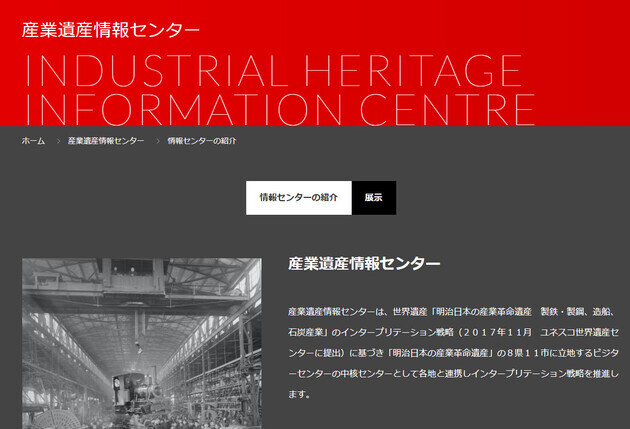hankyoreh
Links to other country sites 다른 나라 사이트 링크
UNESCO “strongly regrets” Japan’s failure to recognize Korean victims of forced labor in Hashima Island

The UNESCO World Heritage Committee said it “strongly regrets” that Japan has failed to adequately implement a recommendation to tell the whole story about how Koreans were drafted into forced labor in the 1940s at industrial facilities in Japan, including Hashima Island, also known as Battleship Island, in Nagasaki Prefecture. The international organization is in effect calling Japan out for not keeping the promise it made when the facilities in question were registered as a UNESCO World Heritage site.
This criticism appeared in a decision (44COM/7B.Add.2) by UNESCO’s World Heritage Committee assessing Japan’s implementation of follow-up measures to the registration of its modern industrial facilities as a World Heritage site. The decision, which was made public by South Korea’s Ministry of Foreign Affairs on Monday, will be tabled at the 44th meeting of the World Heritage Committee, which will convene virtually on Friday. The decision is expected to be adopted on July 22-23.
The World Heritage Committee’s latest decision cites a 2018 decision in which it recommended that the Japanese government adopt an “interpretive strategy” of telling the complete history of each of the 23 modern industrial facilities registered as a World Heritage site in July 2015 and asked Japan to fully implement that recommendation. The World Heritage Committee said it “strongly regrets [. . . ] that the State Party [Japan] has not yet fully implemented the relevant decisions.”
In addition, the World Heritage Committee requested that Japan “fully take into account” the conclusions of a joint mission that UNESCO and the International Council on Monuments and Sites sent to the Industrial Heritage Information Center in Tokyo in June.
“UNESCO officially confirmed that Japan has failed to keep its promises and implement previous decisions of the World Heritage Committee and expressed its very strong regrets while asking Japan to fully implement [those decisions],” said an official from South Korea’s Foreign Ministry.
When Hashima Island and other industrial facilities were registered on the World Heritage list in 2015, Japan acknowledged that Koreans had been drafted “against their will” and “forced to work” at those sites. But the Industrial Heritage Information Center, which opened in Tokyo in June 2020, has only exhibited documents and testimony denying the fact of Koreans’ forced labor, earning widespread criticism.
After that, a team of three World Heritage experts wrote a 60-page report about their in-person visit to the center and an inspection of its website. The experts concluded that the center didn’t sufficiently cover the full history of the various facilities after 1910.
More specifically, Korea’s Foreign Ministry said, those experts called out Japan for not adequately communicating the fact of Koreans’ forced labor in the 1940s, for not holding any exhibits to remember the victims, and for other shortcomings compared to outstanding international examples. The experts also stressed the need for Japan to continue dialogue with relevant countries.
Korea’s Foreign Ministry also pointed out that UNESCO’s decision specified that “a large number of Koreans and others [were] brought against their will and forced to work under harsh conditions” and called for “appropriate measures to remember the victims.”
Remarks to that effect by Kuni Sato, Japanese ambassador to UNESCO at the time of the industrial sites’ registration on the World Heritage list in July 2015, had previously appeared in a footnote. This was the first time the remarks appeared in the body of the decision.
“Since UNESCO has issued such a stern decision, we expect that Japan will implement the measures at the Industrial Heritage Information Center in Tokyo. We urge Japan to take aggressive measures,” a Foreign Ministry official said.
By Kim Ji-eun, staff reporter
Please direct comments or questions to [english@hani.co.kr]

Editorial・opinion
![[Column] Park Geun-hye déjà vu in Yoon Suk-yeol [Column] Park Geun-hye déjà vu in Yoon Suk-yeol](https://flexible.img.hani.co.kr/flexible/normal/500/300/imgdb/original/2024/0424/651713945113788.jpg) [Column] Park Geun-hye déjà vu in Yoon Suk-yeol
[Column] Park Geun-hye déjà vu in Yoon Suk-yeol![[Editorial] New weight of N. Korea’s nuclear threats makes dialogue all the more urgent [Editorial] New weight of N. Korea’s nuclear threats makes dialogue all the more urgent](https://flexible.img.hani.co.kr/flexible/normal/500/300/imgdb/original/2024/0424/7317139454662664.jpg) [Editorial] New weight of N. Korea’s nuclear threats makes dialogue all the more urgent
[Editorial] New weight of N. Korea’s nuclear threats makes dialogue all the more urgent- [Guest essay] The real reason Korea’s new right wants to dub Rhee a founding father
- [Column] ‘Choson’: Is it time we start referring to N. Korea in its own terms?
- [Editorial] Japan’s rewriting of history with Korea has gone too far
- [Column] The president’s questionable capacity for dialogue
- [Column] Are chaebol firms just pizza pies for families to divvy up as they please?
- [Column] Has Korea, too, crossed the Rubicon on China?
- [Correspondent’s column] In Japan’s alliance with US, echoes of its past alliances with UK
- [Editorial] Does Yoon think the Korean public is wrong?
Most viewed articles
- 1‘We must say no’: Seoul defense chief on Korean, USFK involvement in hypothetical Taiwan crisis
- 2Will NewJeans end up collateral damage in internal feud at K-pop juggernaut Hybe?
- 3[Column] Park Geun-hye déjà vu in Yoon Suk-yeol
- 4Why Korea shouldn’t welcome Japan’s newly beefed up defense cooperation with US
- 5Thursday to mark start of resignations by senior doctors amid standoff with government
- 6N. Korean hackers breached 10 defense contractors in South for months, police say
- 7[Guest essay] The real reason Korea’s new right wants to dub Rhee a founding father
- 8[Column] ‘Choson’: Is it time we start referring to N. Korea in its own terms?
- 9Kim Jong-un expressed ‘satisfaction’ with nuclear counterstrike drill directed at South
- 10[Editorial] New weight of N. Korea’s nuclear threats makes dialogue all the more urgent